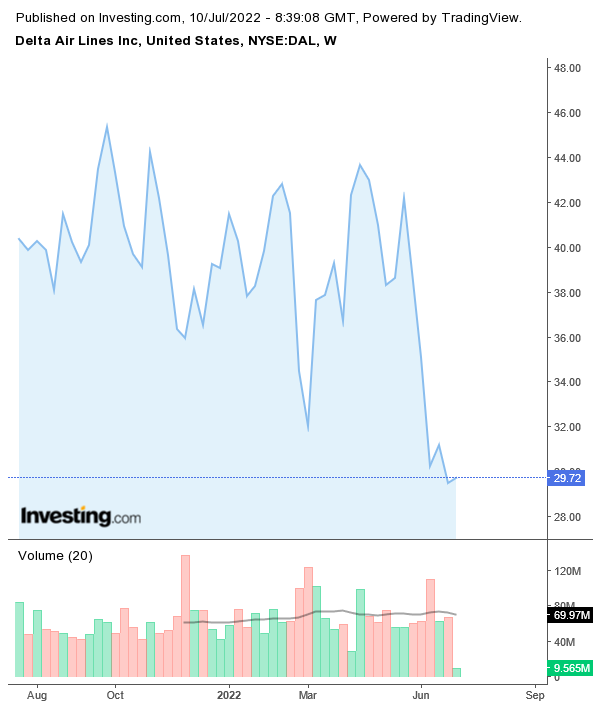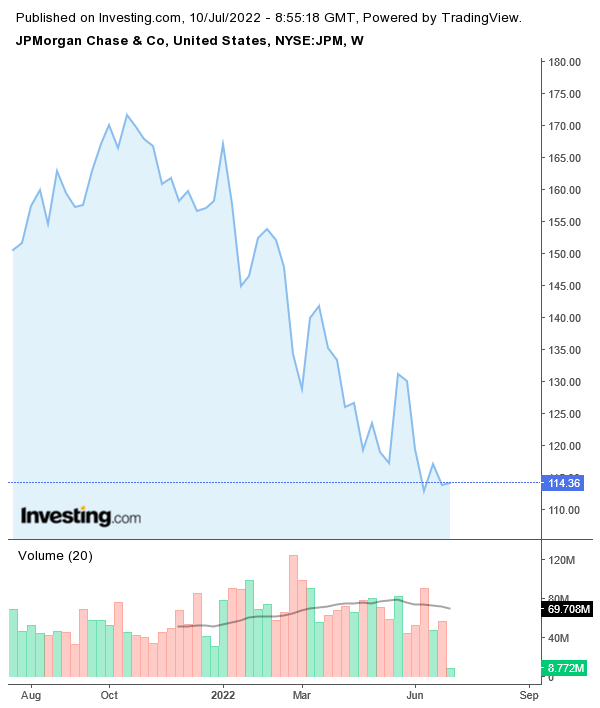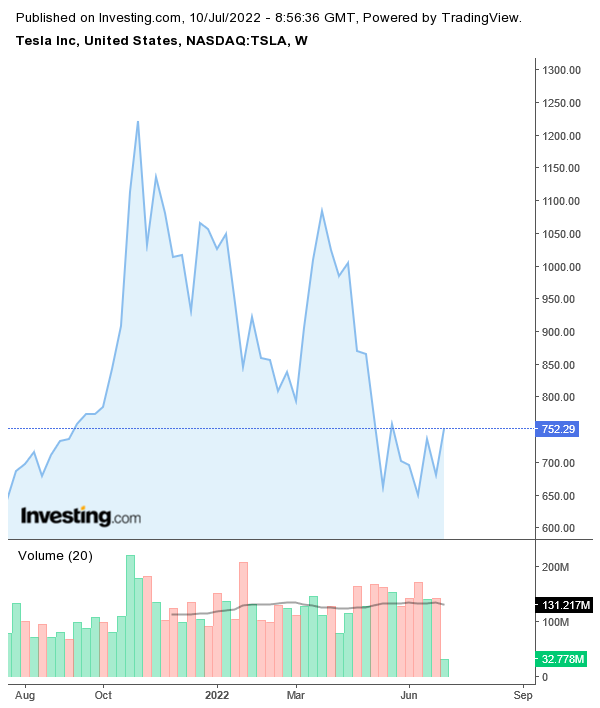- June CPI report and some key earnings present two biggest risks that markets face this week
- JPMorgan, Delta Air report their latest earnings amid increasing cost pressures.
- Tesla shares may see some action after Elon Musk said he plans to scrap his deal to buy Twitter.
Earnings from some of the largest US companies and the latest reading about inflation are the two major risks that could keep equity markets volatile in the week ahead.
The June consumer price index report is due on Wednesday, with economists expecting a hotter reading than May’s 8.6% year-over-year jump. If these projections prove true, it will strengthen the case for another 75 basis points, or even bigger, rate hike at the Federal Reserve’s next meeting on July 27-28.
With this uncertain macro environment, investors will also get a chance to hear from the US corporate leaders next week as the earnings season for the second-quarter begins.
Earnings for the S&P 500 are expected to grow by 5.7% in Q2, according to I/B/E/S data from Refinitiv. The third- and fourth-quarter estimates have been moving down slightly, but they are still showing growth of 10.9% and 10.5%, respectively.
Amid renewed concerns about inflation and the path of US monetary policy, below are three stocks we’re monitoring closely in the week ahead:
1. Delta Air Lines
Delta Air Lines Inc (NYSE:DAL) will report its Q2 2022 earnings on Wednesday, July 13, before the market open. On average, analysts are expecting a profit of $1.65 a share on sales of $12.23 billion.
Airlines in the US are experiencing a strong rebound in travel demand after the COVID pandemic, which forced many carriers to seek federal bailouts to survive. Robust reservations have helped the industry to deal with the higher fuel costs, which have more than doubled since March 1, after Russia invaded Ukraine.
Despite the recovering demand, the industry isn’t out of the woods. While domestic leisure demand is around 2019 levels for many carriers, the recovery in business travel continues to remain weak as companies have been slow to send workers back to offices. Delta stock, which closed on Friday at $29.72, is down about 25% this year.

2. JPMorgan Chase & Co.
JPMorgan Chase & Co (NYSE:JPM) is scheduled to report its Q2 2022 earnings on Thursday, July 14, before the market open. Analysts forecast $2.94 a share profit on sales of $31.82 billion.
Despite a favorable environment in which the Fed is expected to hike interest rates aggressively, banking stocks have weakened with the broader market this year on concerns that the US economy may be headed into a recession due to escalating inflation and continuing supply-side challenges.
JPM stock, which closed on Friday at $114.36, has dropped by 26% this year, ending a remarkable run in 2021 when the lender rose more than 25%.

The US's largest lender told investors in May that it expects credit losses to remain abnormally low through much of 2023, because customers still have enough savings which they accumulated during the pandemic.
Banks make more money on their lending products when interest rates go up. JPM raised its net interest income target in May to $56 billion-plus for 2022.
3. Tesla
The shares of the world’s largest electric-vehicle maker Tesla Inc (NASDAQ:TSLA) may see some action after its CEO Elon Musk said he plans to cancel his deal to buy Twitter Inc. (NYSE:TWTR) for $44 billion or $54.20/share, claiming the social media giant failed to fully disclose how much of the platform’s traffic is driven by spam and fake accounts known as bots.
In a late Friday letter to Twitter’s board, Musk’s lawyer said his client is terminating the merger agreement because Twitter is in material breach of multiple provisions of that agreement, setting the stage for a costly court battle that could drag on for months.
Twitter's deal, which was announced in April, has been a drag on Tesla stock as investors feared that the world's richest man could be spreading himself too thin taking on this new challenge. They also worried that the deal could become a tremendous financial liability for Musk if he pledges Tesla shares while arranging financing, though he has since canceled the margin loan and committed to funding most of the deal with equity instead, selling billions worth of Tesla shares in late April.

Tesla stock, which closed on Friday at $752.29, has lost more than 40% since April 4, when Musk first reported taking a 9.2% stake in Twitter, becoming the company’s biggest shareholder.
Disclosure: The writer doesn't own shares of the companies mentioned in this report
Looking to get up to speed on your next idea? With InvestingPro+ you can find:
- Any company’s financials for the last 10 years
- Financial health scores for profitability, growth, and more
- Fair value calculated from dozens of financial models
- Quick comparison to the company’s peers
- Fundamental and performance charts
And a lot more. Get all the key data fast so you can make an informed decision, with InvestingPro+. Learn More »
